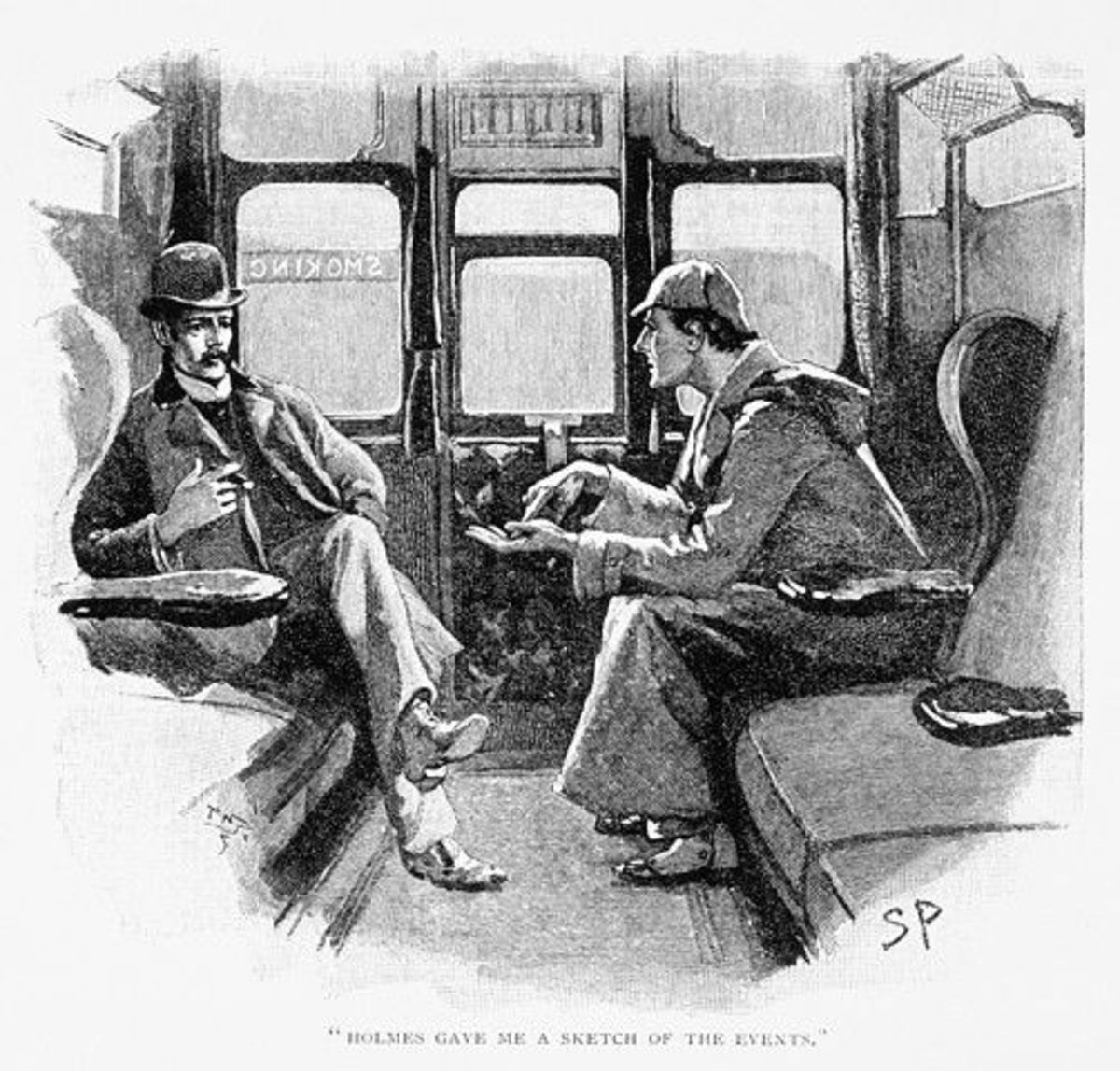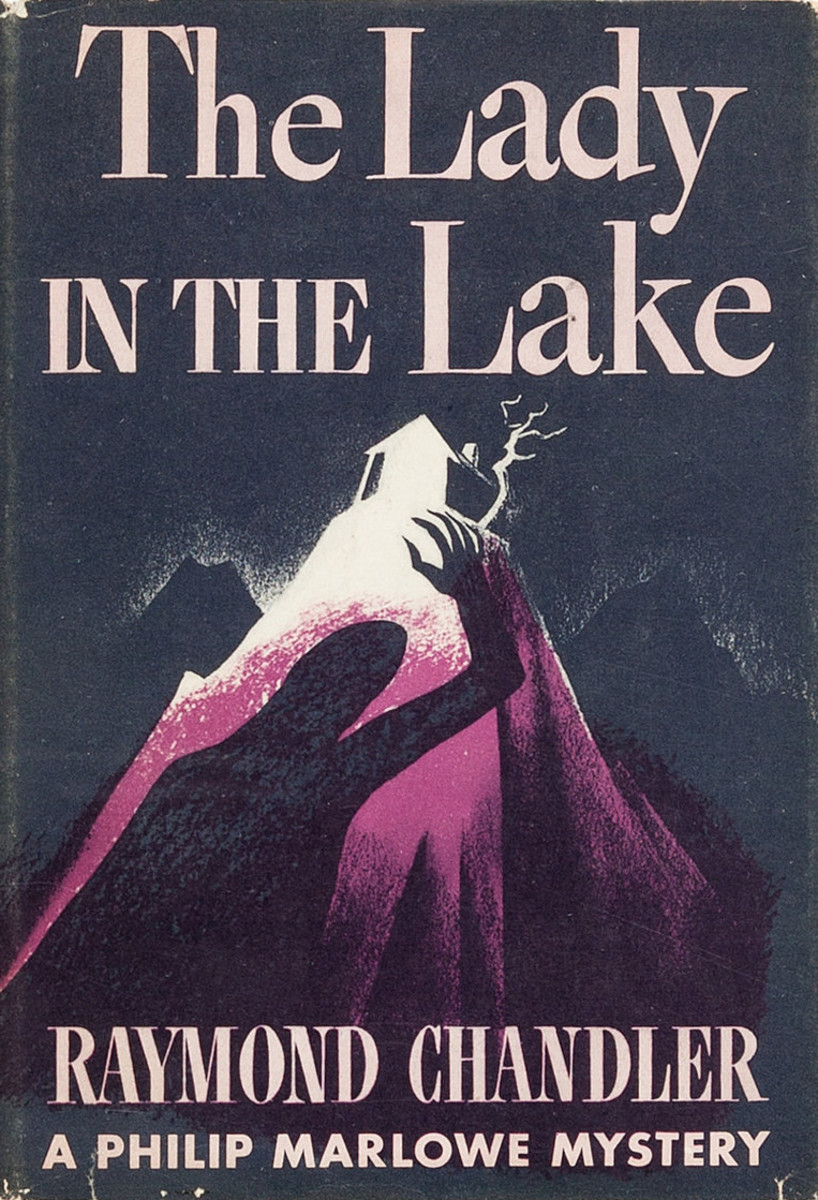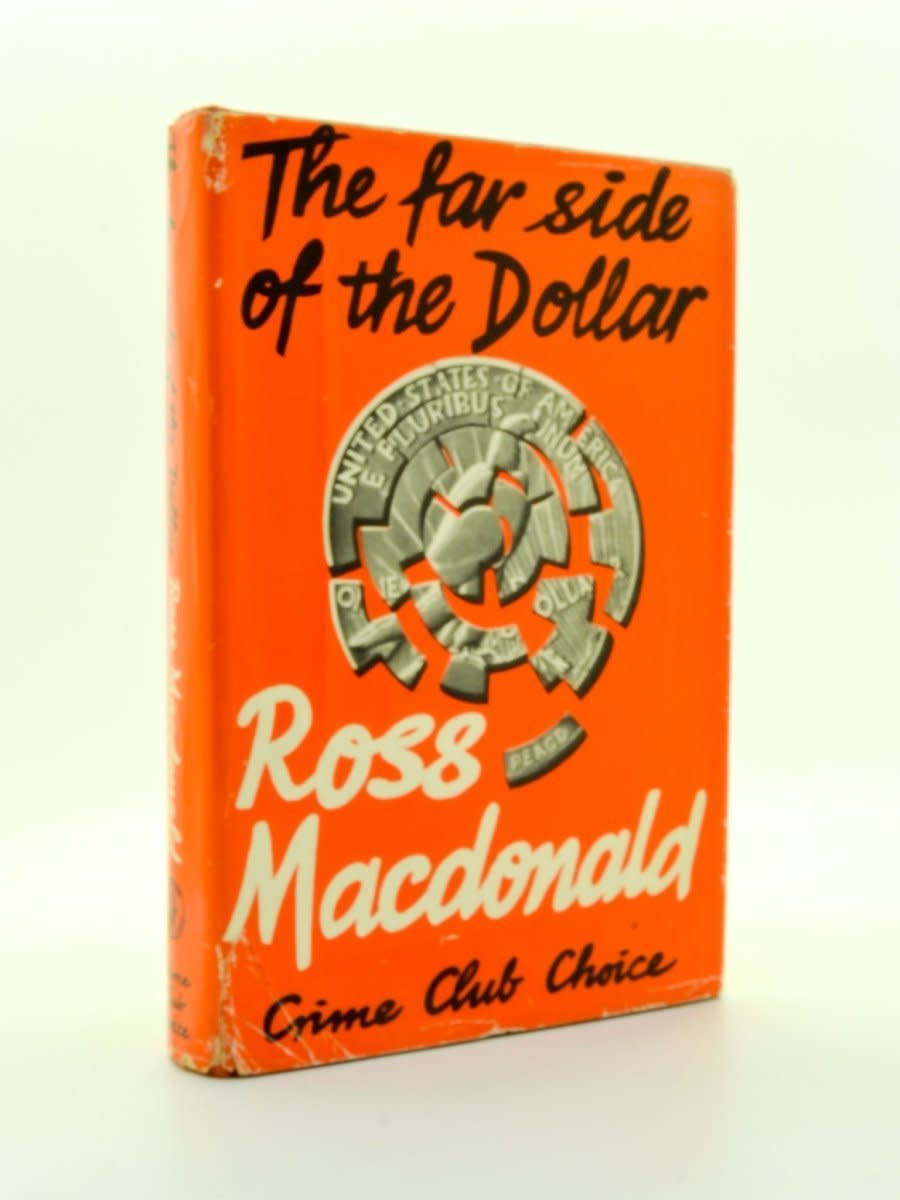Sherlock Holmes: The Detective and his Disguises
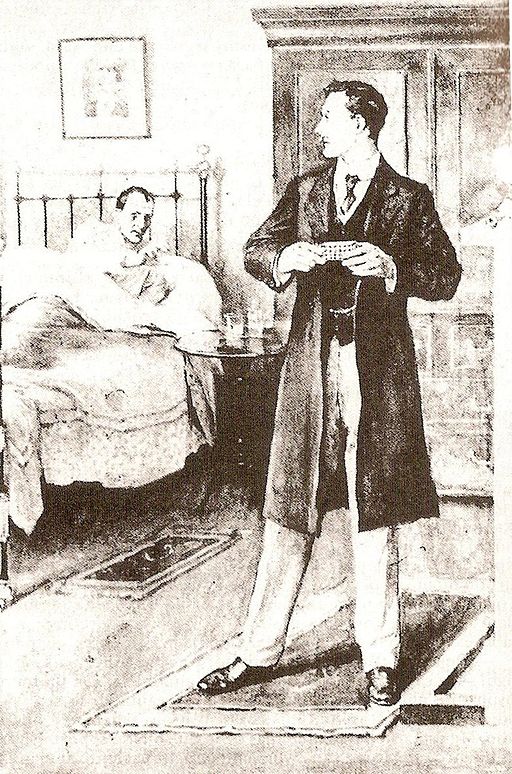
Anything under the Sun
There are many elements to the Sherlockian mythos.
In one way or another, we’ve seen them all. There’s the deductive reasoning element where Sherlock Holmes will state an unrevealed fact which is obvious only to him. After the general amazement of "how could you possibly know that" dies down, Holmes will patiently explain, through his astounding powers of observation and deduction, how he arrived at his conclusions.
The other elements are on the physical side. The smoking, the drugs, the cocaine addiction, the borderline misogyny, the need for cases and the thirst to have justice done – either through the courts or otherwise – are all part of the character.
And then there are the disguises.
Throughout his career, Sherlock Holmes has always been a master of disguise. His near uncanny ability to blend into any undercover setting has been a critical plot point to many of his canonical stories. In fact, I’ve actually been somewhat disappointed by both the BBC Sherlock series as well as the CBS series, Elementary, that they have not touched on this part of the mythology. Personally, I believe that the BBC writers are waiting for the beginning of the third series to spring that on the audience, as Sherlock's Sherlock will need to surprise Watson in his unexpected resurrection through his disguise skills and flair for the dramatic.
In the Doyle canon, there were very few physical things about Sherlock Holmes that were so distinct that they couldn’t be disguised. As he was a lean man approximately six foot in stature, he could use several methods to add weight, subtract height or appear as almost any type of ethnicity. In addition, Holmes was a gifted actor whose talent in crime fighting was the stage’s loss.
By combining his art of disguise with this acting ability, he could impersonate most character types and appear to be almost anything under the sun as a human chameleon.
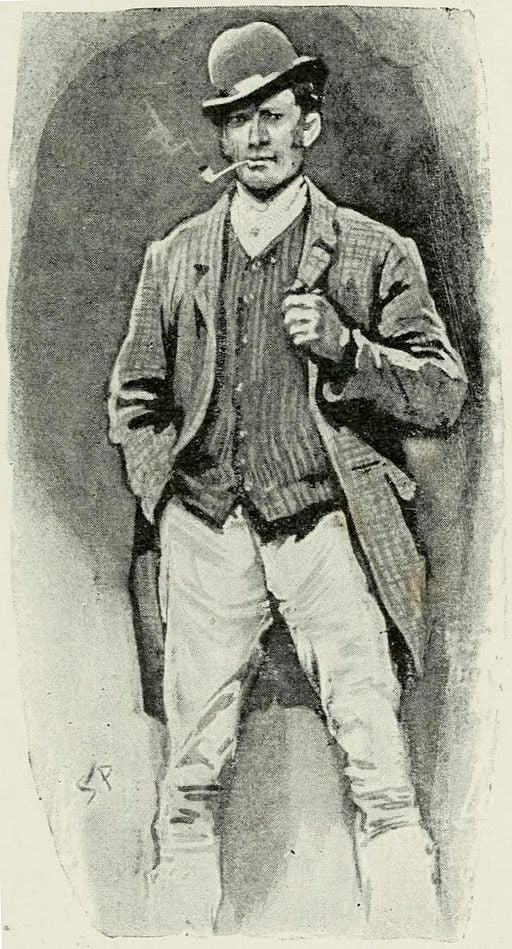
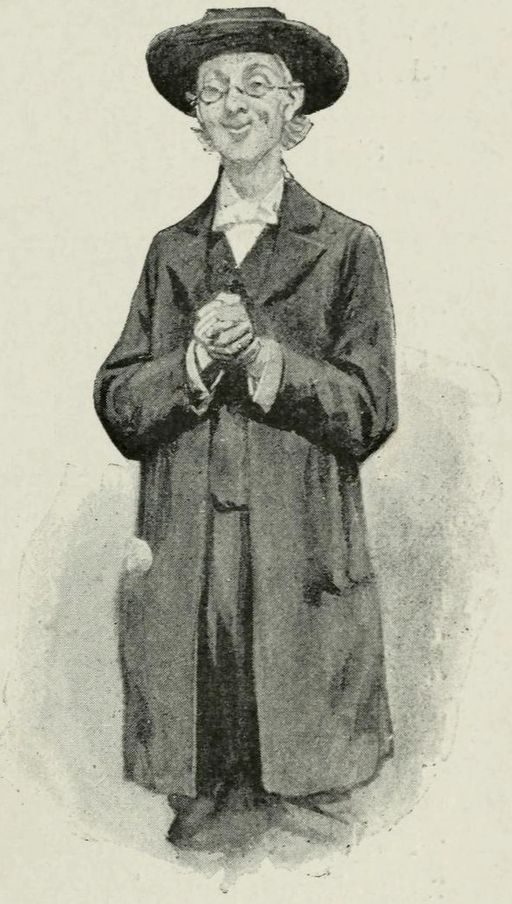
Why Use Disguise?
Readers who know Holmes only through the canonical works of Arthur Conan Doyle are not that familiar with Holmes’ personal history. We know he trained himself to be the world’s only consulting detective. His talents include a number of different fighting styles including boxing, wrestling, fencing, single sticks, and the eastern art of Baritsu. He has an immense knowledge of chemistry, anatomy, biology, and has written at least two manuscripts on ashes from cigars and cigarettes as well as the different types of soil found in London. In addition to this, he is an accomplished burglar, locksmith, and escape artist.
But why use disguise?
According to the non-canonical work of Michael Hardwick’s Sherlock Holmes: My Life and Crimes, Holmes explains where and how he acquired most of his training to be a detective. Holmes gives an account of his early years in America and how he had trained under several of the senior officers in the Pinkerton Agency under William Pinkerton’s older son, Allan.
Pinkerton stressed the importance of criminal types. He believed that different criminals behaved in different types of manner. A burglar would behave differently from a murderer. A bully was different from a thief. When he got to know his quarry intimately, they would casually tell their acquaintances or people within earshot any number of facts. What Holmes had to do was learn how to blend in and assume any appropriate role.
In that time, he learned to not just disguise himself by wearing glasses or growing a beard, but to also use make up to create warts, scars, and other facial deformities.
He could assume the pallor of sickness (as he did in The Dying Detective), fake seizures (as well as catalepsy (as he said he did in The Resident Patient)), faint convincingly, imitate deafness, dumbness, and/or blindness. He also could convincingly adopt a limp in either leg, fake a withered arm, act any age (within reason) and use his voice with the correct inflection appropriate to the role of that character. This included dialects, slang, and accents to whatever region he went to infiltrate.
Critical to these manufactured characters, he was taught to keep notes on each one he assumed. If one set of suspects should recognize him, he would need to remember the history of that character in order to form a feasible excuse for a different color hair or other difference in identity.
He also learned that the undercover expert disguises himself for the job and then reverts to "normal" right afterwards. How many times have readers of other short stories or real cases where a police officer has “gone native” and required months of therapy afterwards in order to regain some semblance of his own sanity?
Again, the chief reason on why Holmes would disguise himself was to ingratiate himself amongst the criminal classes and suspects and get them to speak freely about anything of pertinence.
What do you think the most important element is in undercover work
Holmes' Disguises
In my opinion, one of the best and realistic scenes illustrating Holmes’ ability to disguise himself, made in any Holmes movie was when Robert Downey, Jr. played the great detective in Sherlock Holmes. He used ordinary things at hand to change his appearance completely in a matter of minutes.
There’s a lot I don’t like about the Holmes portrayal in that movie, but the way he grabbed and stole random things to make a convincing disguise was brilliant.
As a purist, I subscribe to Jeremy Brett’s version of the role from all of the Granada series episodes. Brett, a Shakespearian trained actor was able to portray Holmes in several of his different disguises. Brett’s first challenge with this type of performance came during his very first pilot episode in A Scandal in Bohemia where he played both an out of workhorse groomer as well as an old priest – both to fool Irene Adler.
Holmes was so good at the art of disguise that he was regularly able to deceive his closest friend, Doctor Watson in almost every garb he used. Most would argue that Waston was not the brightest bulb in the light factory, but in actuality, Watson was not only of higher intelligence but was also intimately familiar with Holmes' methods.
He has disguised himself as an opium addict, a priest (multiple times), a vagrant, a murderer, a stable hand, and a chimney sweep.
There have been some cases where Holmes was exceedingly cruel in his use of concealment. The first was when he was in disguise as a plumber (in the case of The Adventure of Charles Augustus Milverton) and drew a proposal of marriage from the housemaid - only to appear before her later as himself.
However, the other and possibly the very worst was when he returned from his three year hiatus, after faking his death in The Final Problem, in disguise as an old bookseller to fool Doctor Watson in The Empty House. The shock of seeing his friend returned from the dead was almost too much for the good doctor. Holmes apologetically wrote it off as his “flair for the dramatic”.
Sherlock Holmes on Amazon
Final Words
The use of disguises is such a primary element in the Holmes mythology that it’s hard to imagine any actor portraying Sherlock Holmes not capable of doing so. Such a demand makes it critical to find someone of superior talent.
It is such an integral tool in his war against crime and part of his investigative process that the criminal class would be much better off to truly know who their friends and allies are as opposed to that mysterious, yet convincingly evil, new gang member is. Holmes leveraged his great talent for crime and the methods of crime to not only fight it, but also to perpetrate low level "break ins" when the occasion called for it.
After all, the best way to know your enemy is to temporarily adopt their techniques.
I have found it increasingly humorous that many of the actors that have played Sherlock Holmes have been some of the most versatile ones of their day. They have not only played Holmes convincingly but also have, in past roles, played villains and other complex roles. The list of actors ranging from Basil Rathbone and Jeremy Brett to Robert Downey Jr., Benedict Cumberbatch and Johnny Lee Miller – although, again, the last two have not had the opportunity to use disguise in their versions of Holmes.
The use of disguise, from what Arthur Conan Doyle wrote, might have been what trickled down to modern police undercover work. While I can’t be one hundred per cent certain that this is the case, I’d like to think that some amount of what these new breeds of officers have come from the Holmes legacy.


